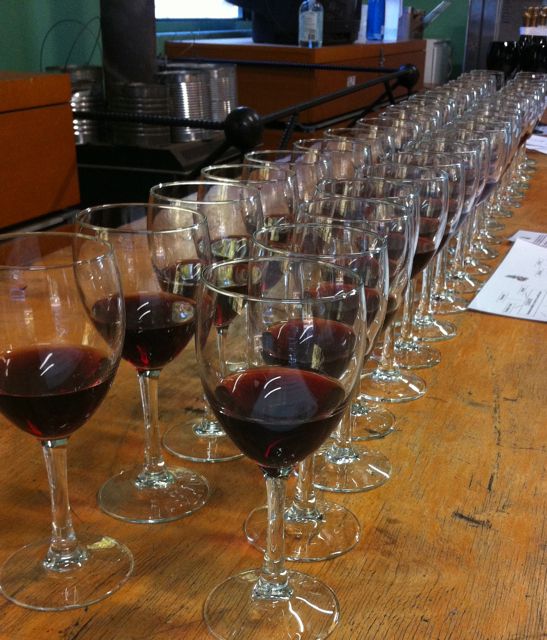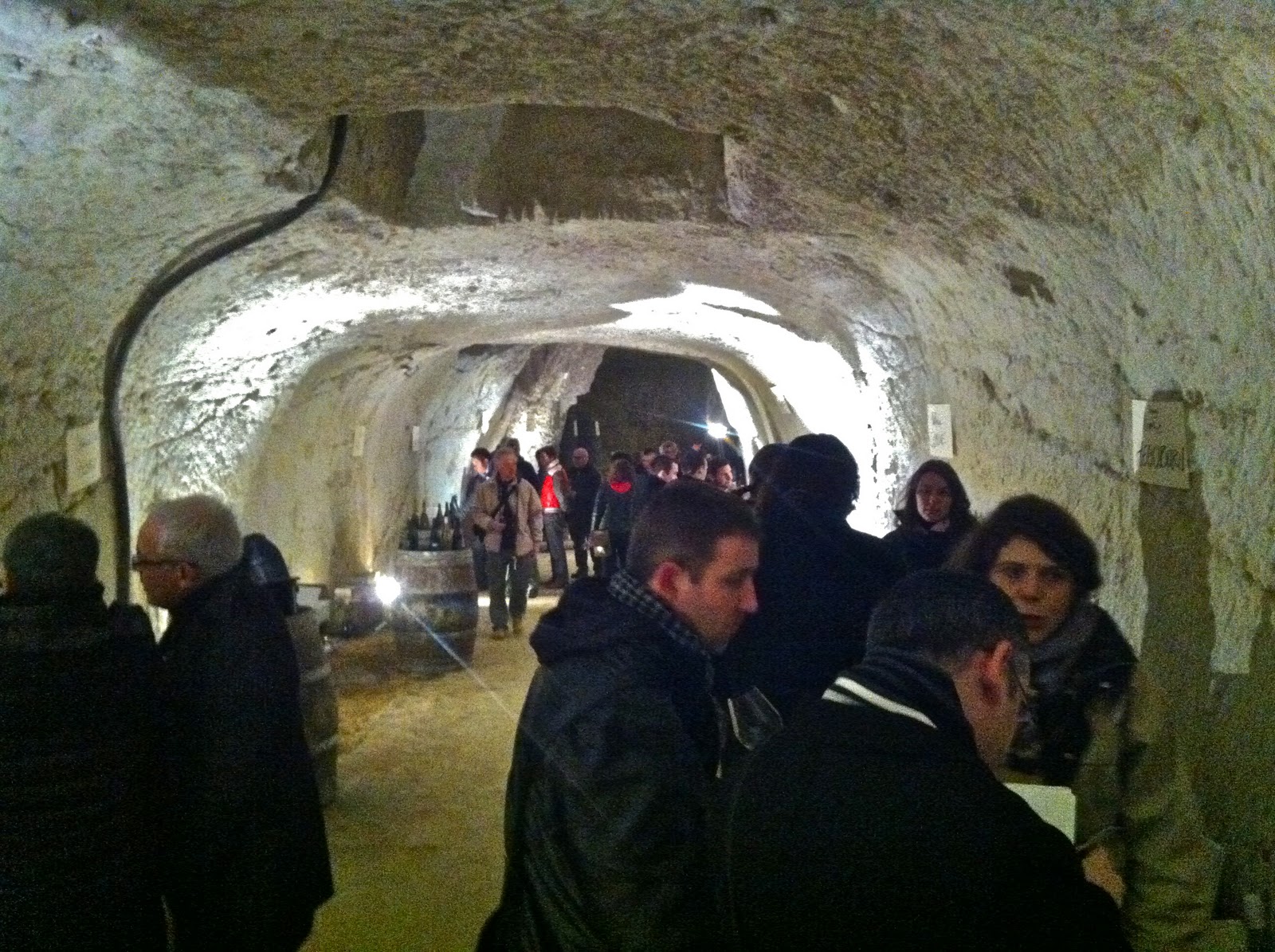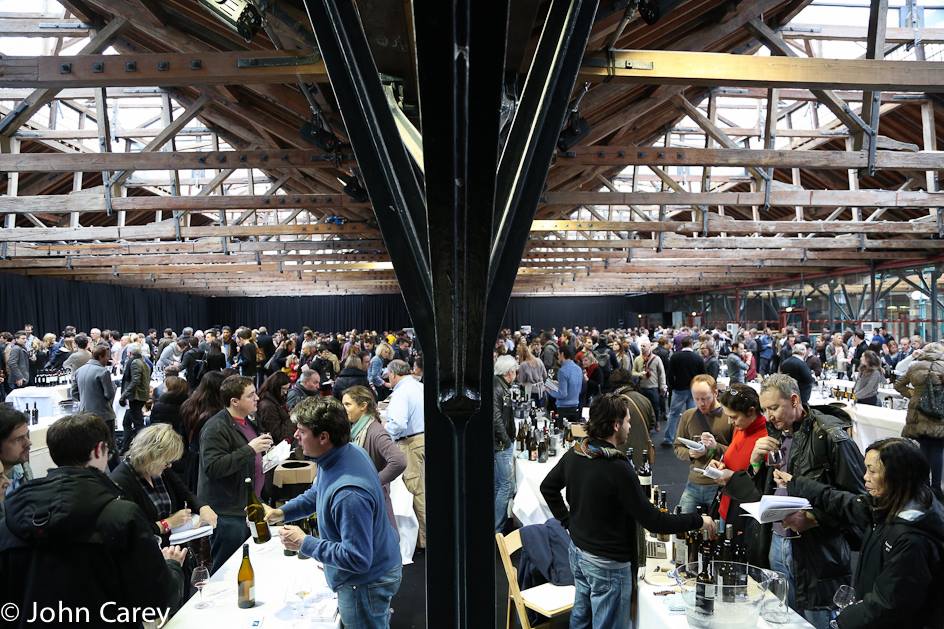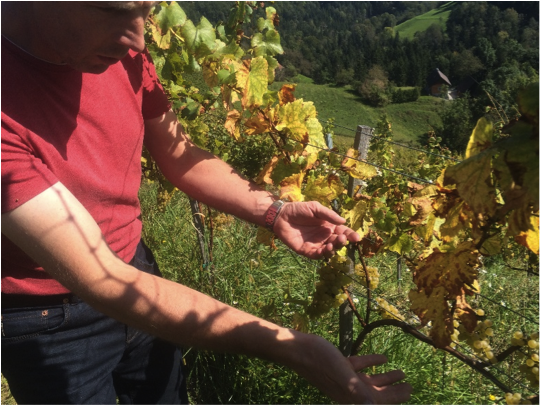When I first became interested in wine I was instructed to taste in a certain way, to break wine down into its constituent parts and to assess analytically (and dismissively). Cleanliness was next to godliness; true wine would never, and should never, deviate from the “tasting chart norm”. Every professional I knew was educated in the same system and subscribed to its scientific and philosophical certainties. I deferred to my elders and betters, supposing that their experience conferred knowledgeable discernment and because I had always been inculcated to believe that correctness was the final unanswerable proof. Now I realise that conservatism has become systemic – educators and experienced journalists have literally told me “I’ve been drinking wine for decades and I don’t expect to have to relearn what is good”. It is naturally upsetting to have one’s preconceptions challenged, but education, if it is to be of value to us, is about constantly questioning and confronting received wisdom. The deference in the wine world to traditional certainties is actually a lazy complicity. Nothing is – or should be – sacrosanct.

There was also a time in those conservative days that organic practices in the vineyard were regarded as quaint and hippyish, and as for biodynamics…well that geomantic Steiner-inspired nonsense was strictly for the cows that jumped over the moon.
How times have changed. The notion of organic farming is entrenched in our culture and biodynamics is practised by several hundred growers throughout the world – brilliant growers who have seen the health of their vineyards improve markedly. This is not to say that there are not abusive viticultural practices, but this is less the case now than when someone once observed that there was more life in the Sahara than in the average French vineyard. It is fair to say that these ethical and practical farming methods have been embraced by a good proportion of the critical establishment.
Fast forward. About seven years ago, I tasted my first naturally made wine in a Parisian wine bar. My first thought was not that “so this is what a natural wine tastes like” – I’m not sure the term existed then, but “Wow, that’s different. It’s different and I like it. A lot.” I felt I was being challenged by the wine, that a hundred sensations were taking place in my mouth, that the wine had an energy I had rarely, if ever, encountered. It was alive, as if it had scooped up the soil, the rocks, the plants and churned them into living liquid.
Such experiences serve to realign one’s palate. In some cases, I would imagine that they would deter people from assaying a natural wine ever again! First impressions are certainly important. My curiosity was piqued – how many of these wines existed? Were they all the same? Or individual? How come they tasted they way they did and in what ways were they similar and different to the wines I had been drinking all my life?You quickly discover that there is a person behind the wine and a story behind the person. You learn about the culture, the geology and the terroir. You learn about biodynamic practice. And you learn about the winemaking methods. Piecing it all together you understand why the wine is the way it is. One grower leads to another… and another. You taste all the wines – some are wonderful, others are not, some are straight, others are crazy, some sing of the terroir, others of the process.
Natural wine has enriched my life. I have never suspended my critical judgement, however. I don’t love a wine because I can call it natural, I love a wine that tastes natural and pure, energetic and lively. Sometimes I want fruit, sometimes I want minerality and structure and I can find all these attributes in a wide variety of natural wines. Discovering natural wine made me discover a fact so simple that one shouldn’t need to articulate it: that taste is purely (and impurely) a matter of taste, and not something arbitrated by the hierarchical few.It’s exciting to have distinctive wines in a portfolio. We don’t sell these wines to people who don’t like the wines; you don’t tell your customers what they should like, you always prefer them to make the discoveries themselves. If they are excited by the flavour of the wine, then they can communicate that new-minted enthusiasm to their customers.
One accusation levelled at the natural fraternity is that the epithet “natural” is used as marketing gimmick. Nothing could be further from the truth. The natural scene is dynamic, a loose affiliation of growers, cavistes and a few assorted importers. In France you have umpteen different festivals briefly convening these myriad growers: La Dive and La Remise being the most notable. They are like ad hoc family gatherings; occasionally, people fall out of the family whilst others join it. PR blah-blah is notably absent. In Italy the situation is slightly different with the more agenda-driven VinNatur, but the festivals are just that, a demonstration of camaraderie and solidarity rather than po-faced tastings hyped to the heavens.
Once upon a time (not that long ago) there were just a handful of growers and one or two growers’ events. From tiny acorns… now there are hundreds of growers and dozens of events, not just in Italy and France, but two in London, some speckled around the States, and several in Australia. The fairs celebrate the artisan culture in general and the notion of terroir and provenance in particular, but they also function as a means of hand-selling wine, connecting the vigneron directly to the drinker.

(photo credit: notdrinkingpoison.blogspot.com)
You might see the proliferation of fairs as a structured movement, or you might see it as evidence that more and more growers are working in the natural idiom. The former implies there is a common or centrally-imposed agenda, the latter indicates a kind of organic growth, the rise and rise of spontaneous mutualism. A fair can comprise a dozen growers oozing onto the pavement in a bohemian Parisian street or a couple of hundred vignerons from across the globe meeting in freezing tenebrous cellars under a castle.
I never saw natural wine as being antipathetic towards traditional wine. The phenomenon was too diffuse, by (lack of) definition, there was no single overarching philosophy or an agreed charter of good practice. There were always several strings to the natural bow: the ethics of chemical-free viticulture, the search for terroir and typicity, the making of wine with few or no interventions. Holistic as well as wholesome, this approach to winemaking was initially viewed as interesting development, an unthreatening divertissement rather than a discernible trend, and certainly not worth writing about if you were an important commentator. Checkout the number of articles concerning natural wine before 2007, say, compared to today.

It is difficult to pinpoint a moment when critical attitudes towards the phenomenon of natural wine stalagmatised to stone. Just as, according to TS Eliot “humankind cannot bear too much reality”, so the defenders of the status quo cannot stomach too much novelty. In France and Italy the official structures (appellations, interprofessional bodies, bureaucratic involvement) militate against perceived innovation and proscription was used as a tool to throttle the freedom of the grower. This politicised some growers who were compelled to secede from appellation so they could make their wines without bureaucratic interference. As Henry David Thoreau pertinently wrote: “All men recognize the right of revolution: that is, the right to refuse allegiance to, or to resist, the government when its tyranny or its inefficiency are great and unendurable”. In this country we manufacture more critics than wine, and the debate tends to be less visceral and more pseudo-academic.
As mentioned a lot of people were initially enchanted by the natural wine manifestation – it was a breath of fresh air in the stale wine scene. The wines were real, the antithesis of mass-produced brands. Look at the cute bottles with the funny innocent labels. The wines were kooky and fun and some were really good. The natural wine bars had a great selection by the glass and embodied a new, dynamic, democratic wine culture. You could just open a bottle and try it. You didn’t have the posturing and flummery of traditional sommelier-driven service. It was indeed all about the wine.
In the UK one wine bar became two, three and then four. And then others sprouted. Little wine companies specialising entirely in naturally made wines appeared. First there was one natural wine fair – and then there were two. And major events, reinventing the whole notion of the wine tasting, with superb growers and wines. Natural wine, if not still mainstream, had entered the wider consciousness.
The “discussions” before, during and after, became derailed by minutiae, the minutest of which is whether to use sulphur dioxide – or not. There is no fixed position on this other than from those particular conservatives who fixate about it unduly. Yet it has become an article of faith amongst the criterati who lambaste growers about what they do or don’t do in the winery on the basis of… precisely zero information. If you look at the tech sheets of three hundred growers, as I do almost daily for my sins, you would discover a huge variety of different approaches to farming and vinification, albeit that the growers in question are working in the same idiom. Furthermore, the sulphur readings make interesting reading, analysis proving how uncertain an art science can be. We have examples of several growers who use zero sulphur during the winemaking process and yet end up with comparatively high total sulphur levels. And others who use sulphur at certain stages and end up with very low total sulphur totals. Except where this is not the case. And because it is also a matter of degree, and according the need of the wine, approaches will be different from barrel to barrel, vintage to vintage, grape to grape.
Natural wine has never been one-solution-fits-all, (a myth propagated by the conservatives and commentators who haven’t delved deeply enough into the issue), it has always revolved around the spirit in which the vigneron works, focusing on environmentally sensitive organic and biodynamic solutions in the vineyard and sensible low-intervention winemaking.



One of the most lucid descriptions of what’s going on that I have read. Thank you.
I can agree with that history, thanks for puting things into context!
“Natural wine has never been one-solution-fits-all”, a phrase to be remembered – I hate it when ‘criterati’ write things like “the Natural Wine Movement syas that …..”, or “The Natural Wine Movement believes that ….”
Cheers (salud y buen vino)